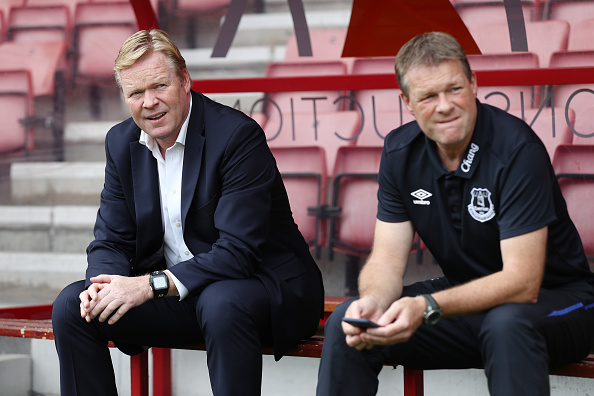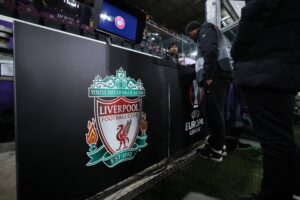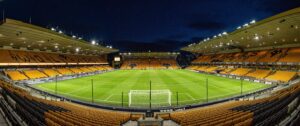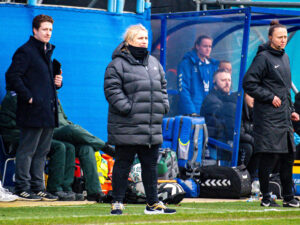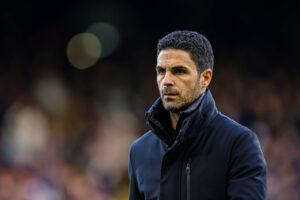Families in Football: Ronald and Erwin Koeman
Ronald Koeman
Ronald, the younger of the Koeman brothers began his career in 1980 at Groningen. It was here that the defender, who could also play in midfield, began to show his eye for goal. His long-range shooting skills, free kick and penalty accuracy would bring him much success in his career. 34 goals in 98 appearances for his first club saw the Netherlands’ most successful team Ajax come calling.
In Amsterdam, Koeman would win his first title and continue to score on a regular basis. When Ajax failed to win the title for a second consecutive season, Koeman would shock the club and make the move to the newly crowned champions PSV Eindhoven.
It was a move that paid off for Koeman as it saw his trophy cabinet swell with three more title wins, two cup wins and a European Cup victory – PSV’s first and only triumph in the competition. The goals also continued to flow with 63 goals in 130 games in all competitions, a tally that most strikers would be happy with. It was during his time at PSV that Koeman would experience his greatest achievement with the national team.
European Championship Winner
In 1988, Ronald Koeman was part of the Netherlands squad that would win its only trophy to date. Until Euro 88, the Dutch were known for their style of football called “Total Football” and their superstars; however, despite coming close, a trophy had eluded them. This was also their first major tournament since 1978 but despite this, Holland with their team of superstars that included Koeman, Ruud Gullit, Marco van Basten and Frank Rijkaard, amongst others, were one of the favourites.
The Dutch reached the final after tough battles against the likes of West Germany and England and would face the team who beat them in the opening game of the tournament, the Soviet Union. However, there would be no repeat as the Netherlands won the game 2-0 thanks to Gullit and a van Basten volley that would go down as one of the greatest ever goals.
Barcelona’s Dream Team
Following his success at PSV and at Euro 88, Koeman left the Netherlands and headed to Spain. He signed for the Spanish giants in 1989 and would become part of the famous dream team that would lift the European Cup for the first time in its history. It was Koeman’s free-kick in extra time that would send the Barca fans inside Wembley wild with delight.
With the help of the likes of Barcelona greats Hristo Stoichkov, Romário, Pep Guardiola and Michael Laudrup, Koeman would also win four La Liga titles in a row alongside triumphs in the European Super Cup, Copa del Rey, and the Supercopa de España.
In every season in Catalonia, Koeman would impressively reach double figures for goals scored. In total, he scored 88 goals in all competitions in six seasons.
Following his tally of goals in 264 appearances, Koeman returned to his native Holland and signed for Feyenoord. In doing so, he became one of just a few players to play for all the “big three” teams in his home country. After two seasons with the club, Ronald Koeman called time on his impressive playing career.
Top Scoring Defender in History
To this date, Ronald Koeman holds an impressive record: the top-scoring defender in history. 193 goals in 535 league appearances easily beats any other defender. In all competitions, he scored 239 goals. Until Lionel Messi arrived on the scene, Koeman also held the record of scoring the most free kicks for Barcelona with 25. Despite being primarily a defender, Koeman even topped the scoring charts in the 1993/94 European Cup tournament, scoring eight in 12 games.
Management
Since retiring from playing, Koeman has gone on to manage 11 teams. He has also managed all but one of the teams he would play for, his first club Groningen. Beginning at Vitesse, Koeman would move to Ajax where he would add another two league titles to his silverware collection. More success followed at the likes of Benfica, PSV, Feyenoord, and Valencia before moving to the Premier League, first with Southampton where he took the Saints to sixth place before joining Everton.
As coach of the Dutch national team, he led them to a runners-up spot in the Nations League and the finals of Euro 2020. Before the finals, which were delayed by one year, Koeman accepted the manager’s job at Barcelona. He. would win the Copa del Rey but a poor run of form at the beginning of the 2021/22 season saw him relieved of his duties.
Erwin Koeman
European Glory
Management
Following retirement, Koeman returned to PSV to become a youth coach before being promoted to assistant manager. His first role as manager came at RKC Waalwijk before heading to Feyenoord. Following his first full season in charge, Koeman left Feyenoord after a frustrating seventh-placed finish.
Spells with the Hungary national team, FC Utrecht, and PSV followed. Time in England being an assistant manager at Southampton and Everton came along before returning to management at Fenerbache as caretaker then Oman and Beitar Jerusalem.
Koeman retired from football management in 2021 citing personal reasons. He said: “With all the will to continue, I have to stop now due to personal circumstances. It was difficult for me, but I recently spoke with the president of the club, Eli Ohana, and I informed him of my decision. It is also time to retire permanently as head coach.”


